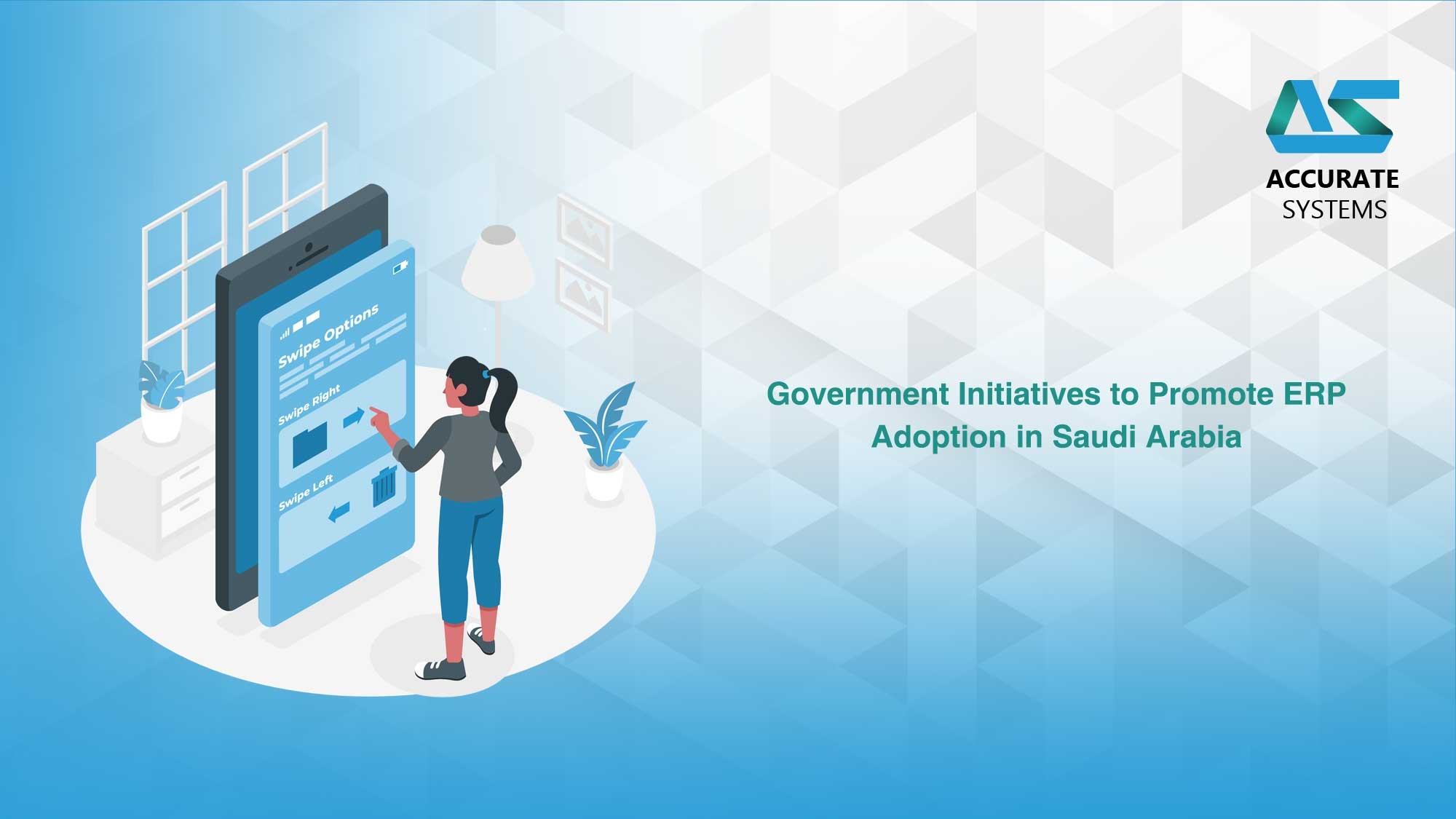Introduction to ERP Adoption in Saudi Arabia
Enterprise Resource Planning (ERP) systems are increasingly becoming essential for businesses in various industries. These systems streamline operations, improve efficiency, and enable better decision-making, making them a strategic investment for organizations. Recognizing these benefits, the government of Saudi Arabia has launched multiple initiatives to encourage ERP adoption. This article explores the key policies and incentives driving ERP implementation in the Kingdom.
Key Government Policies Promoting ERP in Saudi Arabia
- Digital Transformation and Vision 2030
Saudi Arabia’s Vision 2030 emphasizes the role of technology in achieving economic diversification and modernization. As part of this vision, ERP systems have been identified as crucial for digital transformation across businesses. The government actively promotes ERP adoption to modernize companies and enhance their global competitiveness. - Regulatory Support for ERP Implementation
The Saudi government has introduced regulations that promote ERP system adoption by businesses. These regulations ensure compliance with data security standards, interoperability, and seamless integration with government systems, creating a favorable environment for ERP use. - Public-Private Partnerships (PPPs)
To accelerate ERP adoption, the government has encouraged collaboration between public agencies and private tech providers. These partnerships help develop and implement ERP solutions tailored to the specific needs of Saudi enterprises.
Incentives and Support Programs for ERP Adoption
- Tax Incentives for ERP Investments
The Saudi government offers tax deductions or exemptions for businesses investing in ERP systems. These tax incentives apply to the purchase, implementation, and maintenance of ERP software, reducing financial barriers for companies. - Financial Assistance Programs
To further support ERP adoption, the government has launched financial assistance programs. Businesses can access grants, loans, and subsidies to cover ERP implementation costs, making it easier for small and medium-sized enterprises (SMEs) to adopt the technology. - Training and Capacity Building
Saudi Arabia is investing heavily in training programs designed to equip businesses with the skills needed to effectively implement and use ERP systems. Workshops, seminars, and certification programs are regularly offered to build local expertise. - Technology Infrastructure Improvements
A robust technology infrastructure is essential for successful ERP adoption. The government is investing in broadband internet, data centers, and cybersecurity to ensure that businesses have access to the necessary infrastructure for ERP solutions.
Challenges to ERP Adoption in Saudi Arabia
- Cultural and Religious Considerations
While modernization is a priority, cultural and religious factors still influence business practices in Saudi Arabia. The government has addressed these challenges by offering customized ERP solutions and culturally aligned training programs to ease the adoption process. - Data Privacy and Security Concerns
Data security is a top concern for businesses in Saudi Arabia, particularly given strict regulations and cultural sensitivities. The government has implemented measures to ensure robust data protection, reassuring businesses that ERP systems are secure and compliant. - Talent Shortage in IT and ERP Implementation
A shortage of skilled professionals in the IT and ERP sectors poses challenges to widespread adoption. To mitigate this, the government is investing in education and training initiatives to build a highly skilled workforce capable of driving ERP adoption.
Future Trends in ERP Adoption in Saudi Arabia
- Rise of Cloud-Based ERP Solutions
Cloud-based ERP systems are gaining traction due to their scalability, flexibility, and cost-efficiency. The Saudi government is supportive of cloud technology adoption and has implemented policies to ensure data security and privacy for cloud-based ERP platforms. - Demand for Industry-Specific ERP Solutions
As Saudi Arabia diversifies its economy, industry-specific ERP solutions are becoming more important. Sectors like healthcare, manufacturing, and retail are increasingly relying on tailored ERP systems, and the government is promoting initiatives to meet this growing demand. - Integration of ERP with IoT and AI
The integration of ERP with the Internet of Things (IoT) and Artificial Intelligence (AI) is creating new opportunities for businesses in Saudi Arabia. Government support for emerging technologies encourages enterprises to adopt advanced ERP solutions that incorporate IoT and AI capabilities.
Conclusion: Driving Economic Growth Through ERP Adoption
The Saudi Arabian government’s initiatives and policies are playing a pivotal role in promoting ERP adoption. By addressing challenges such as cultural considerations, data security, and talent shortages, and by capitalizing on trends like cloud-based ERP, the country is well-positioned to drive economic growth through technology. As ERP systems continue to evolve, Saudi businesses stand to benefit from increased efficiency, improved decision-making, and enhanced competitiveness in the global market.


